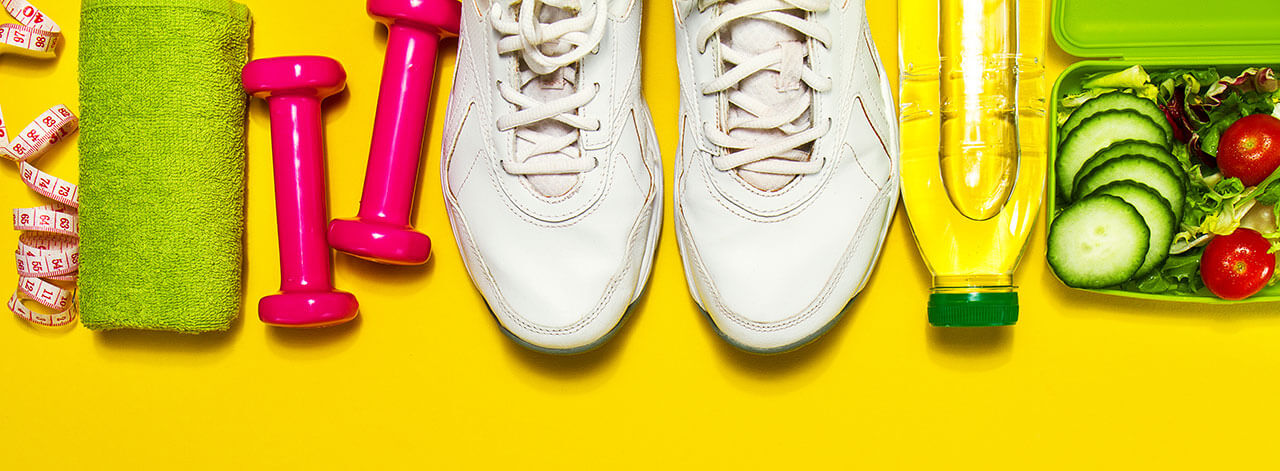
 The Scoop on Vitamin D
The Scoop on Vitamin DWe need it, but what is the best way to get it? First things first, it is not a "vitamin", it is a hormone. Let's explore:
• Vitamin: Something the body needs but cannot produce. Must be procured from external sources (ideally food).
• Hormone: Something made by the body in one place that carries instructions needed in another, or several other places.
Fun Facts about Vitamins:
• There are 13 for humans
• 4 are fat-soluble
• 9 are water-soluble
Fun Facts about Hormones:
• There are about 50
• Produced in endocrine glands and tissues
• Some fat soluble, some water-soluble
Science about the D family:
• It’s a fat-soluble*, secosteroid (seco…steroid)
• The biologically active form is called calcitriol:
• 1,25-dihydroxycholecalciferol
* Means we can’t readily excrete excess
So, if D is a hormone, how is it produced in the body? It starts in the lower layers of the epidermis. When the sun meets our skin, UVB rays convert readily available 7-dehydrocholesterol into Vitamin D3. Then it’s off to the liver and the kidneys for “activating” (turned into 1,25-dihydroxycholecalciferol)
How much is enough?
Low D, first and foremost, is a sign you are not getting enough sun, not that you need to rush off to the pharmacy.
D is measured in I.U. (international units) when getting it from external sources. It's always good to keep daily intake under 4000 IUs.
Serum blood level tests, 25 (OH)D, (the OH stands for hydroxy), are known to be inaccurate. Different testing companies have different levels of what they call normal.
The minimum target is 20 ng/ml (nanograms per milliliter), The happy medium is 30 ng/ml. There is no additional benefit above this.
We can't overdose from sun exposure, although we could burn and that's not good either. Getting 10-20 minutes of sun around noon-ish, twice a week, will do. Darker skin colors require 3 to 10 times more. Sunscreens with harmful chemicals can cause collateral damage. If you are planning to stay in the sun longer, physical blocks are better. Think hats, sunglasses, rash guards, zinc or titanium oxide. And if you are worried about living in the northern climates with no sunshine in the winter, know that the D hormone produced in the body by the sun is stored in the liver and our fat cells. When our body needs it, it calls for it and activates it!
Taking too much of a Vitamin D supplement can cause nausea, vomiting, weakness, insomnia, nervousness, and more. Overdose of Vitamin D supplements can cause kidney damage. It can also increase the risk of cancer, heart disease, prostate cancer in men, and higher LDL cholesterol.
What are the benefits from getting our Vitamin D from the sun? It builds strong bones through managing your calcium levels, helps manage levels of magnesium and phosphate, has a role in cancer prevention, enhances immune system performance, enhances bone absorption of minerals, promotes healthy cellular growth, and reduces inflammation.
Remember, there are NO super foods or super supplements. Your Vitamin D level is low as a result of illness or not enough sunshine. Get your Vitamin D from the Sun, not tanning salons. It also naturally occurs in salmon, mushrooms, sardines and breast milk.
Supplementation should be the last resort. Our bodies are elaborately set up via highly sensitive biological systems to produce the exact right amount of Vitamin D we need at every moment. Fortified foods and pills have a one size fits all system with fixed dosages designed to provide too much or too little. And remember, Vitamin D is not water soluble, so if you ingest too much the body cannot readily correct via excretion the way that B vitamins and Vitamin C get excreted because they are water soluble. Our "cleansing organs" must purge us of something (excess Vitamin D in a synthesized hormone form) that we were never designed to get rid of. That puts undue stress and strain on them.
The vitamin supplement industry is highly monetized and "pharmaceutical-ized". The 2022 market for Vitamin D was $1.34 billion dollars. Marketers have taken advantage of bad diet and lifestyle habits and contributed to making us think that a handful of supplements a day will make us feel better.
Sitting in the sun is not bad. Research shows that women who avoid the sun have shorter lives. Avoiding the sun has similar risk factors as smoking. Sunshine deficiency may also contribute to decrease in insulin's responsiveness, Mutiple Sclerosis, and cardiovascular disease.
So, there you have it. I am sure that a lot of you have been told by your doctor that you NEED to take a supplement. This is not defensible with science, but the decision is always yours, once you know all the facts. The bottom line is to be an informed consumer!
Liz Fattore
Nurture Your Health
Licensed Food Over Medicine Professional
The objective of Nurture Your Health is to learn how to remain or become a healthy person, rather than to remain or become a sick patient. Most people do not pay attention to their health until they are sick. It is important to prioritize learning about health and investing time and resources in adopting the right diet, engaging in the right exercise, and paying attention to other factors that lead to optimal health. Make learning about health interesting and fun. Use this information to take control of your health and make better and informed decisions about what you eat, which lifestyle choices you make, and the medical care you receive.
This information is not a substitute for medical advice.





0 Comments